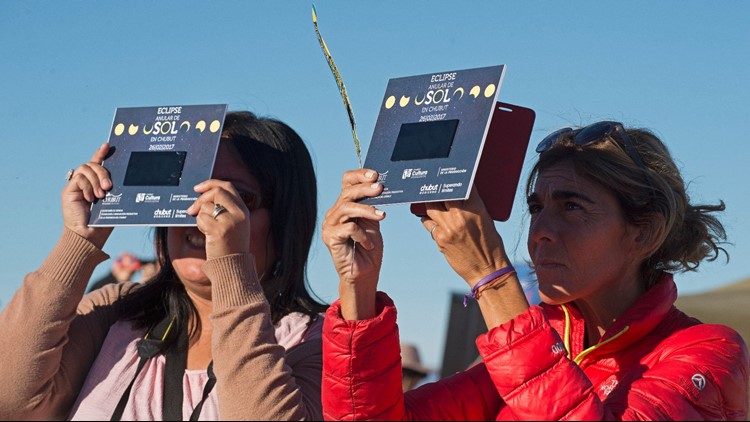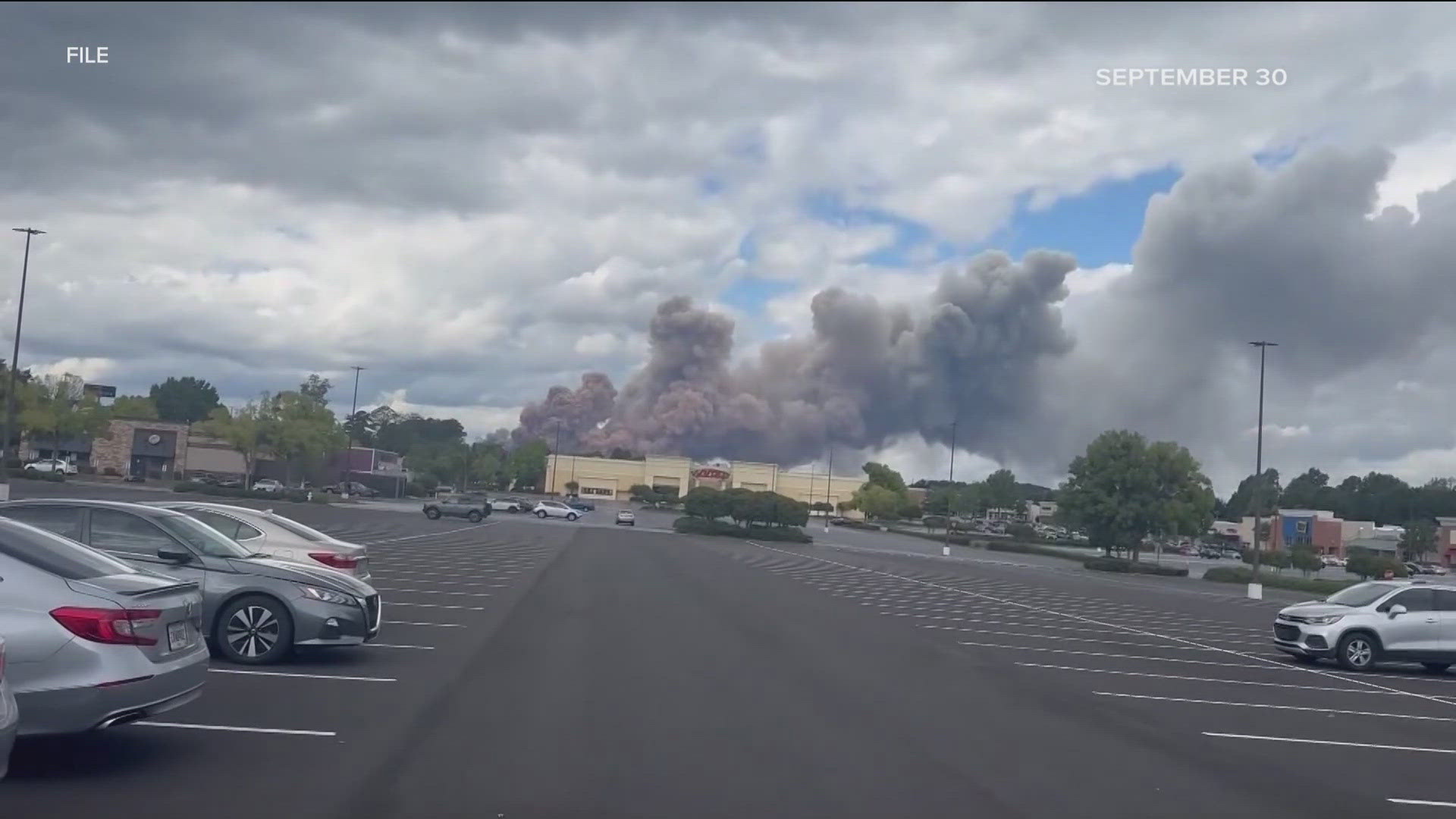On Aug. 21, a swath of the USA will plunge into darkness during a continent-wide total solar eclipse. The zone of totality, where stars could briefly come out in the middle of the day, crosses 12 states from Oregon to South Carolina, and already hotel rooms are selling out. “A lot of people will have a chance to see a spectacular sight,” says George Moromisato, author of 101 Amazing Sights in the Night Sky (Adventure Publications, $14.95). He shares some promising places, tracking from west to east, for the celestial event with Larry Bleiberg for USA TODAY. For more info, see eclipse2017.nasa.gov.
John Day Fossil Beds National Monument, Ore.
The National Park Service is already planning for crowds in what’s usually a quiet corner of Oregon. The monument’s three units, known for an abundance of plant and animal fossils, will all plunge into darkness for up to two minutes. “It’s a wonderful setting with a great chance of clear skies,” Moromisato says. The monument bookstore will carry eclipse-viewing glasses and filters, but suggests visitors bring their own in case they sell out. nps.gov/joda
Craters of the Moon National Monument and Preserve, Idaho
Moromisato says there’s a certain symmetry to watching an eclipse involving the moon on a landscape named after the moon. “It’s an otherworldly place right at the edge of the path.” Total darkness will last about a minute. nps.gov/crmo
Grand Teton National Park, Wyo.
The famed Rockies park sits in the middle of the eclipse path and will experience up to two minutes and 20 seconds of darkness. Moromisato says rangers will likely provide programming for the event. “It’s another great reason to see it in a national park as opposed to the middle of a highway somewhere.” nps.gov/grte
Homestead National Monument of America, Neb.
This park plans a full weekend celebration leading up to the Monday eclipse, promising “Darkness over the Prairie.” Events including a photography workshop, music and stargazing. The park gift shop’s already selling a range of souvenir merchandise. nps.gov/home
St. Joseph, Mo.
The town north of Kansas City sits near the center of the path and has five planned viewing areas, including an historic mansion overlooking the Missouri River bluffs. The chamber of commerce says some national hotel reservations websites and reservations centers are incorrectly indicating the city’s hotels are sold out, and urges visitors to call local hotels directly to book rooms. StJoMoEclipse.com
Carbondale, Ill.
The home of Southern Illinois University is promoting itself as the “Eclipse Crossroads of America.” Not only is it at the center of the excitement this year, but seven years later, on April 8, 2024, it will experience a similar event again when another North American eclipse crosses the country from Texas to Maine. carbondaleeclipse.com
Hopkinsville, Ky.
If you want to eke every second out of the eclipse, this western Kentucky town is one of your best bets. It will experience a full two minutes and 41 seconds of darkness, plus the event coincides with the town’s fifth annual Little Green Men Festival, inspired by a UFO incident from the 1950s. “It’s a small little local town celebrating. They will have a lot of little cool activities,” Moromisato says. visithopkinsville.com
Nashville
Tennessee’s capital will be the biggest city to completely go dark. “Anyone can just walk out the door and see a total eclipse. It’s going to be a shared experience. Everyone will be talking about this for the next 10 years,” Moromisato says. And it just might inspire a new country music classic. visitmusiccity.com
Great Smoky Mountains National Park, Tenn. and N.C.
The western section of the nation’s most visited national park will experience up to two minutes and 20 seconds of totality. The park has organized three viewing areas, including Cades Cove, Oconaluftee and Clingmans Dome. Viewing from the latter, the highest peak in the park, will be by ticket only. “You’ll have the full view around you and will be able to see the shadow of the moon below,” Moromisato says. nps.gov/grsm/planyourvisit/2017-solar-eclipse.htm
Charleston, S.C.
The historic coastal city has rolled out an array of packages for the event, from hotel rooftop viewing with a College of Charleston astronomy instructor, to a blues-and-barbecue harbor cruise on a paddlewheeler. “This is essentially the last place in the United States that will see the eclipse,” Moromisato says. charlestoncvb.com/special-offers/packages/eclipse



